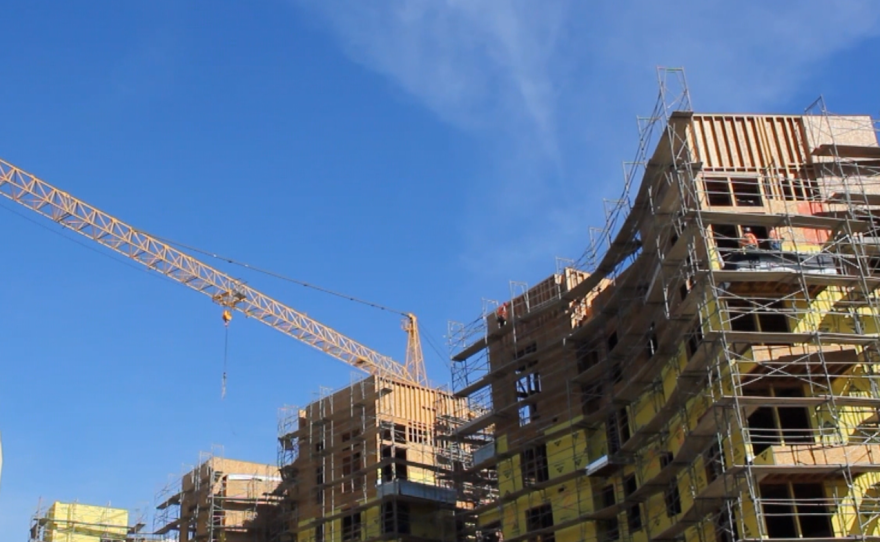The San Diego City Council on Tuesday approved a package of measures aimed at alleviating the city's acute shortage of affordable housing.
The measures, which passed unanimously, include an increase to the "density bonus" available for projects with more housing reserved for low-income residents. Higher-density housing is more attractive for developers because they can make more money off of a smaller parcel of land.
Also among the incentives was a reduction in the parking requirements for affordable housing built within a half-mile of public transit. That measure brings the city in line with a 2015 state law meant to combat climate change and promote alternative transportation.
Developers prefer lower minimum parking requirements because they can build more housing on the land that would otherwise be reserved for cars. Locating affordable housing near public transit can reduce greenhouse gas emissions because low-income residents are less likely to own personal vehicles and more likely to take advantage of nearby bus and trolley services.
Councilman Todd Gloria said the savings from the incentives should go toward increasing the overall housing supply and not simply to increase profits for developers.
"I hope that the market will respond, and that the incentives provided really do result in not just production, but production of units that are affordable to working-class and middle-class people," he said.
San Diego's Community Planners Committee, which represents the city's 22 quasi-elected community planning groups, symbolically voted to oppose the parking requirement reduction, while acknowledging the city was required by state law to pass it. It also voted to oppose a measure allowing affordable housing units to be built off site, as long as they meet several other requirements. The votes were advisory only, and the City Council passed all five measures in the package.
The incentives were supported by a coalition of environmentalists and affordable housing advocates, as well as business groups often on the opposite side of the political spectrum.
"We need more (housing) units built," said Sean Karafin, director of policy and economic research for the San Diego Regional Chamber of Commerce. "We need our workforce to find affordable homes here in San Diego, so they're not looking to Seattle or to Portland or to Austin to find a more affordable climate."
Colin Parent, policy counsel for the transit-advocacy group Circulate San Diego, said the diversity of groups supporting the measures "represents a growing consensus that we have to make really substantial efforts to provide more housing in San Diego at all income levels."
The measures need approval from the California Coastal Commission to become law. City staffers estimated that approval will come in four to five months.







